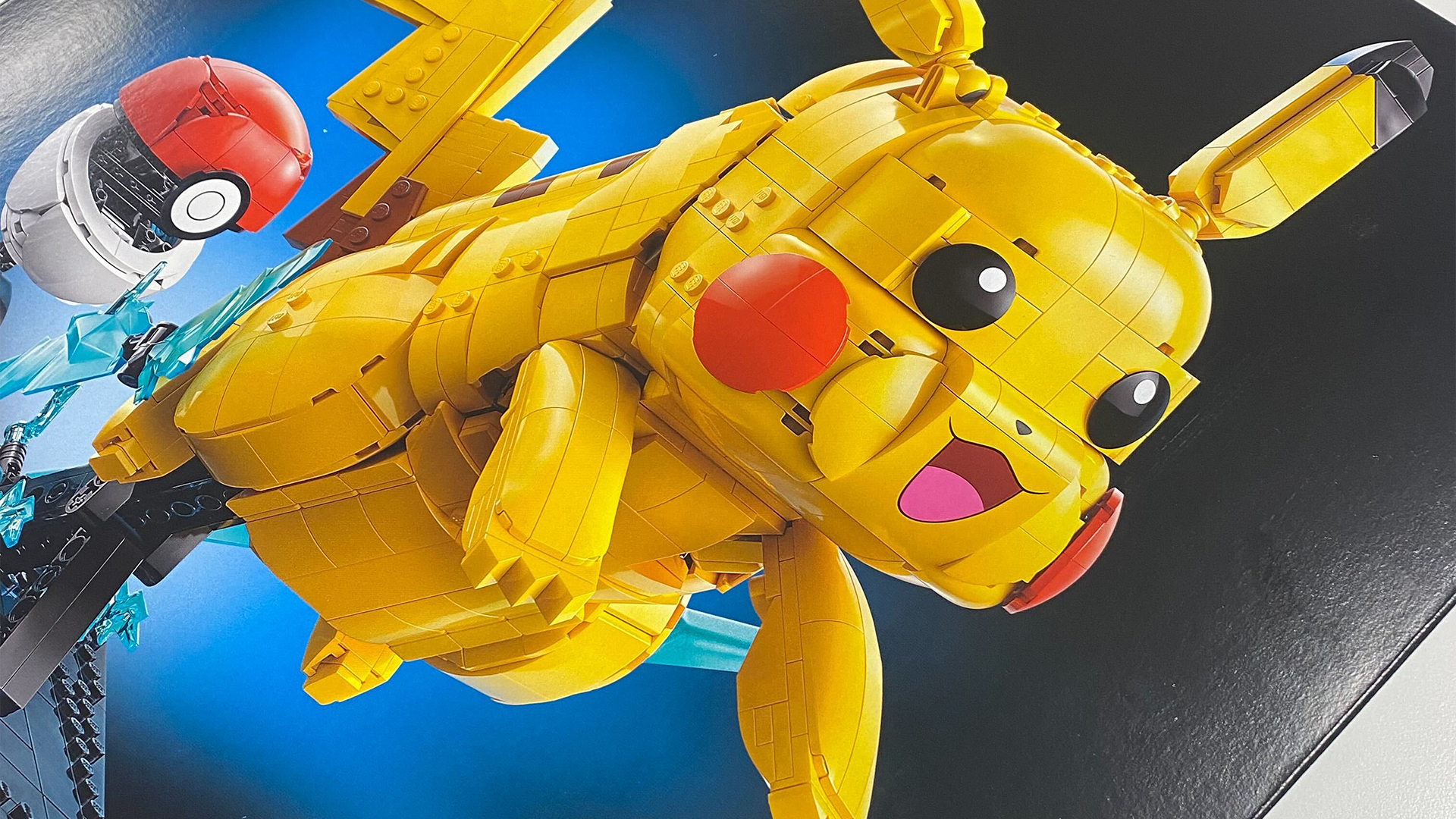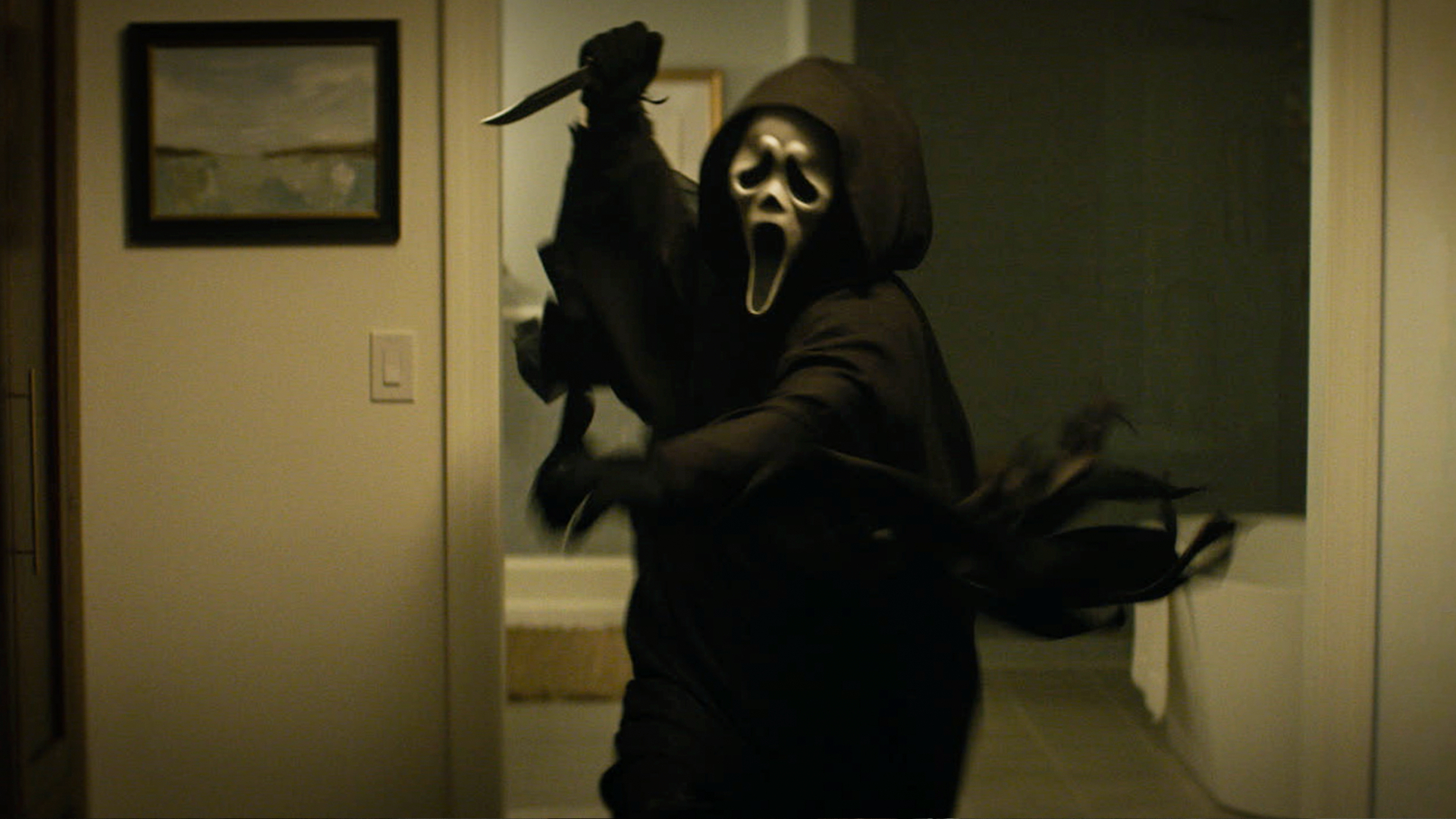The Silent Hill f writer's debut game was basically the original Doki Doki Literature Club, and it's still terrifying me 23 years later
Now Playing | Higurashi: When They Cry is a chilling folk horror with a tantalizing mystery even with its minimalist text-focused design, which makes me more excited for Silent Hill f than ever
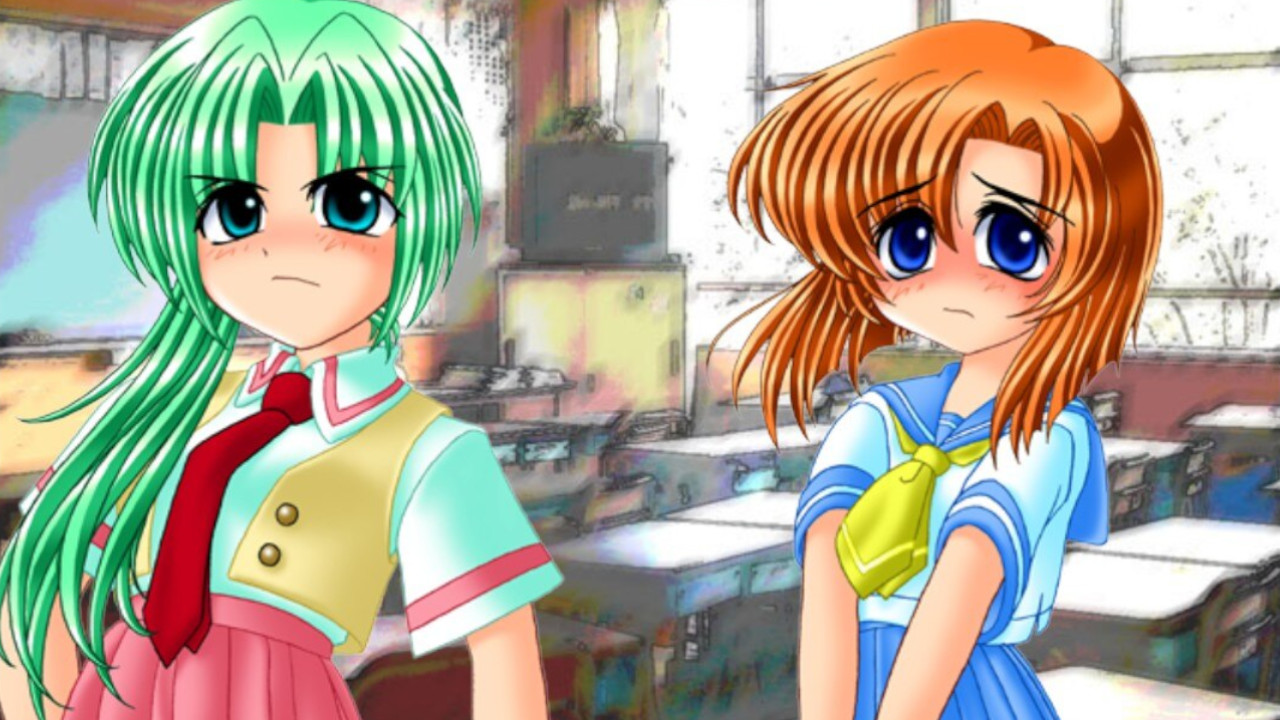
Weekly digests, tales from the communities you love, and more
You are now subscribed
Your newsletter sign-up was successful
Want to add more newsletters?
With school over, it's time to engage in after school club hijinks with cute classmates, and learn about one another in the process. Yet, things take a turn, revealing a darkness beneath. The anime girls get sinister, and unsettling gore makes you feel a bit sick. Doki Doki Literature Club, who? I'm talking about Higurashi: When They Cry, the episodic horror game from 2002 created by 07th Expansion and led by Ryukishi07, who's writing the upcoming Silent Hill f.
Which isn't to rag on Doki Doki Literature Club – it's a fun take on the formula that goes its own direction, and I'm always for anything that'll get players more interested in the visual novel space. Playing Higurashi after Doki Doki is quite funny given just how many similarities they share – it's one of those moments where you clock a heavy influence so clearly that it feels like everything clicks into place. Higurashi might be less well known over here (it took a long time to be released in English) but it's a massively influential cult classic folk horror game. It's the main thing that's making me extremely excited for Silent Hill f.
Small town folk horror
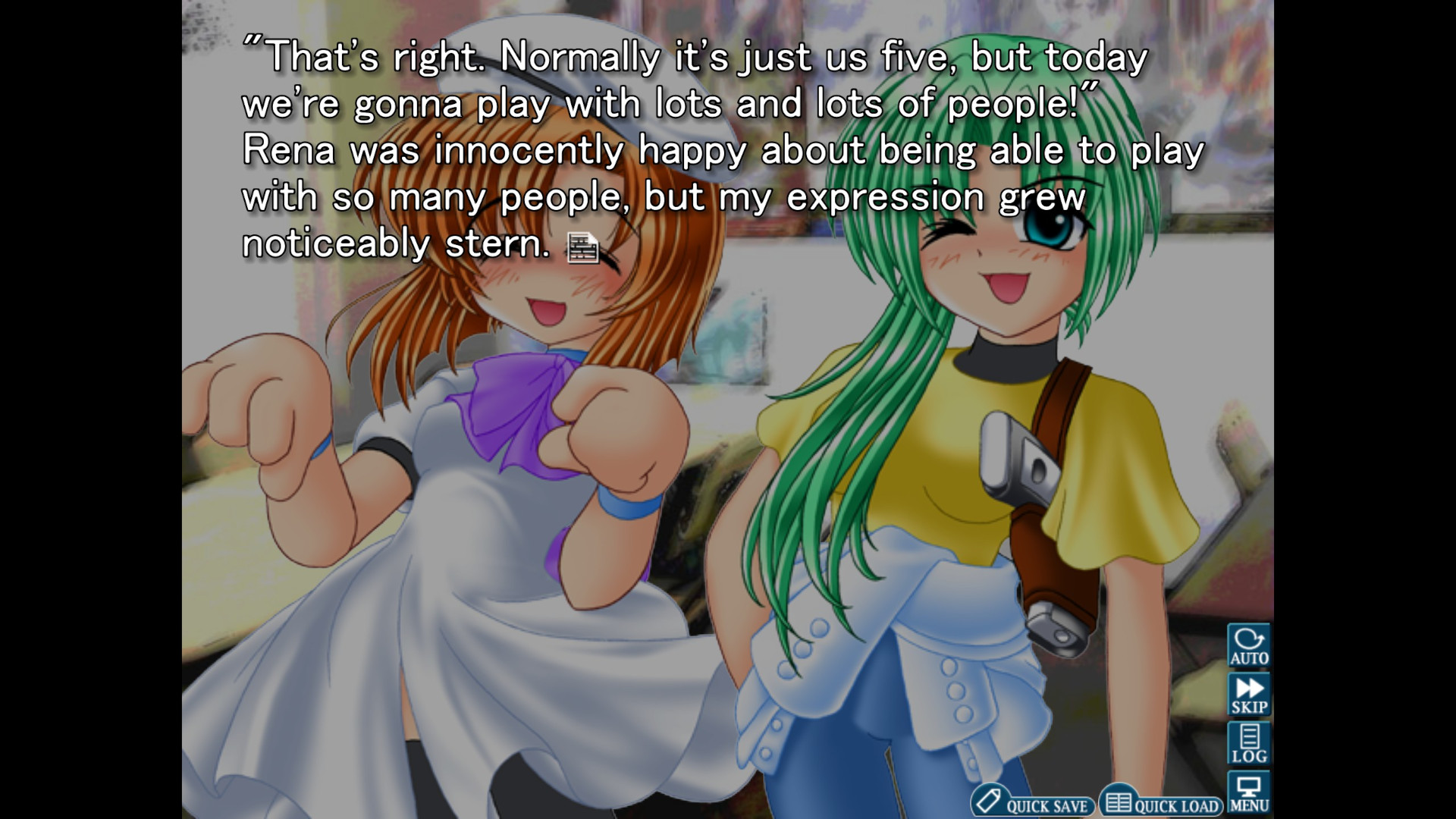
He begins to notice that there are some things people just don't talk about.
Like Doki Doki Literature Club, Higurashi: When They Cry is a visual novel (technically in the sound novel style), though a much longer one, broken up into several arcs with an interconnected, solvable mystery. Primarily playing as young teen Keiichi Maebara and set in the '80s, you've moved to the small rural town of Hinamizawa from Tokyo. That means going from intense cram schools to a tiny educational program that's taught out of a shared space with the local forestry commission with all the students in one single room. It's a huge change.
Embracing the pace of rural life, you make friends with a disparate group who all take part in a game club, challenging one another in no-holds-barred matches to win card games, board games, and just about any potential challenge they can think of. With embarrassing, comical punishments for whoever loses, of course, ranging from eyebrow-raising anime antic cliches to being forced to talk dismissively about curry in front of your curry devoted teacher. Higurashi can be slow at times, large chunks of each arc – at least early on – devoted to these idyllic slice-of-life sections.
Like Keiichi, you settle into this rhythm of play as you wonder what'll happen. It's the same reason the cooking scenes in Fate/Stay Night are really the best bits. Yet, though he's making friends and adjusting to life, he begins to notice that there are some things people just don't talk about. The annual Watanagashi festival isn't just an excuse to play fair games and honor the local temple, but is also the center of an urban myth surrounding accidental deaths and disappearances. Newspaper clippings talk about a government dam project that would have left Hinamizawa abandoned and flooded, which led to violent clashes between residents and officials, including a disturbing murder several years prior. And nobody you ask will acknowledge it whatsoever, treating you coldly when you probe.
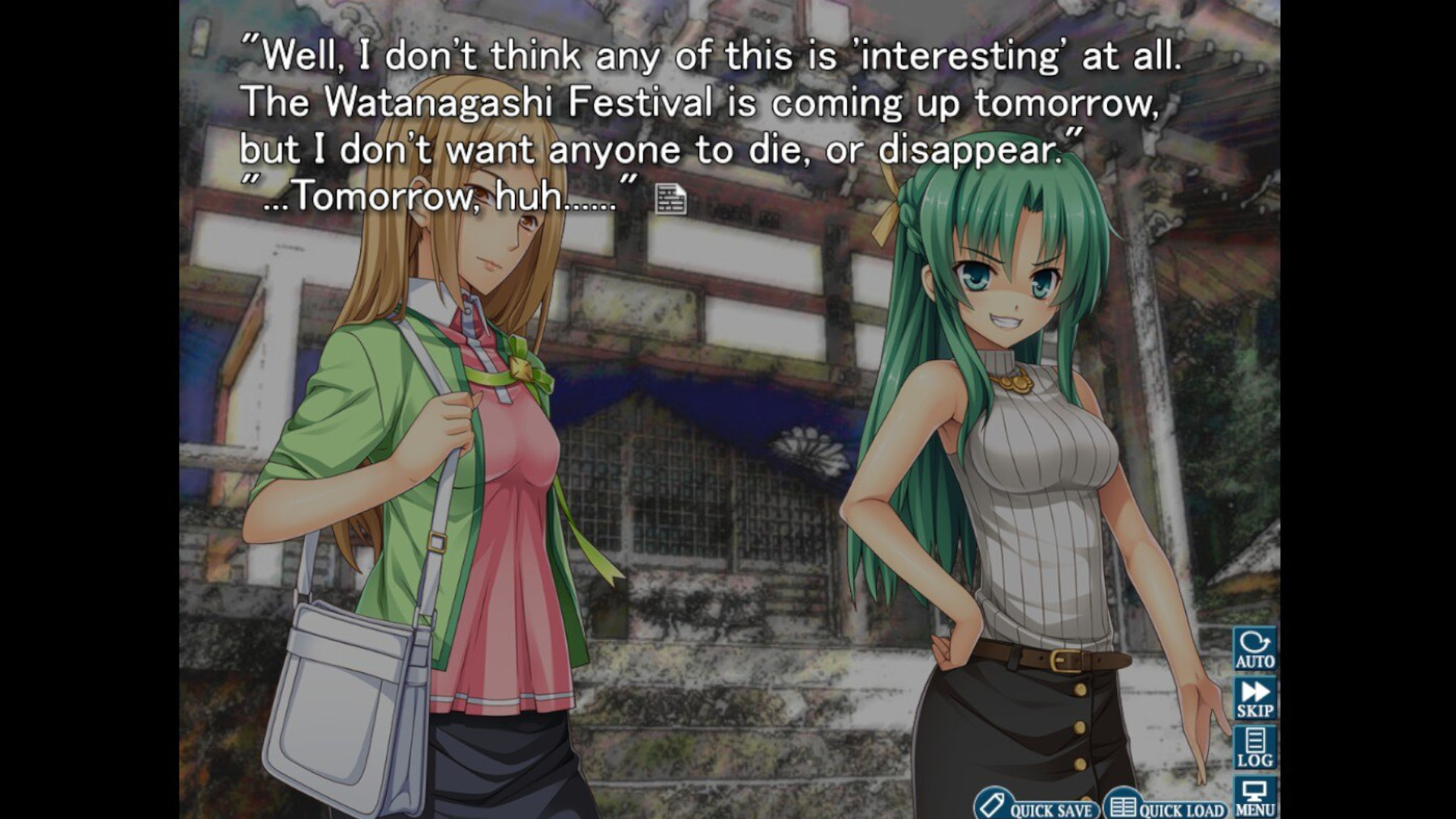
While it definitely takes a while to get going (Higurashi's first arc is free and meaty, and I recommend getting past the festival to see it get going), the slow pace of the beginning is definitely necessary to set up the feeling of integrating into a new community before its rug pull. And this is no magician yank either, this is pulled from beneath you with a slow deliberation, horror soaking into the margins a drop at a time until it's inky black.
Higurashi really captures that horrible feeling that you've done or said something wrong within a group, but really have no idea what exactly it is you did, and nobody will tell you. It's a kind of social horror that trades in paranoia and conspiracy. As an outsider in a tight knit community that seems to have plenty of secrets, the idea that everyone is watching you closely or talking behind your back is really scary. Especially when it seems your friends are more deeply involved, and you have to question who you can still trust.
Weekly digests, tales from the communities you love, and more
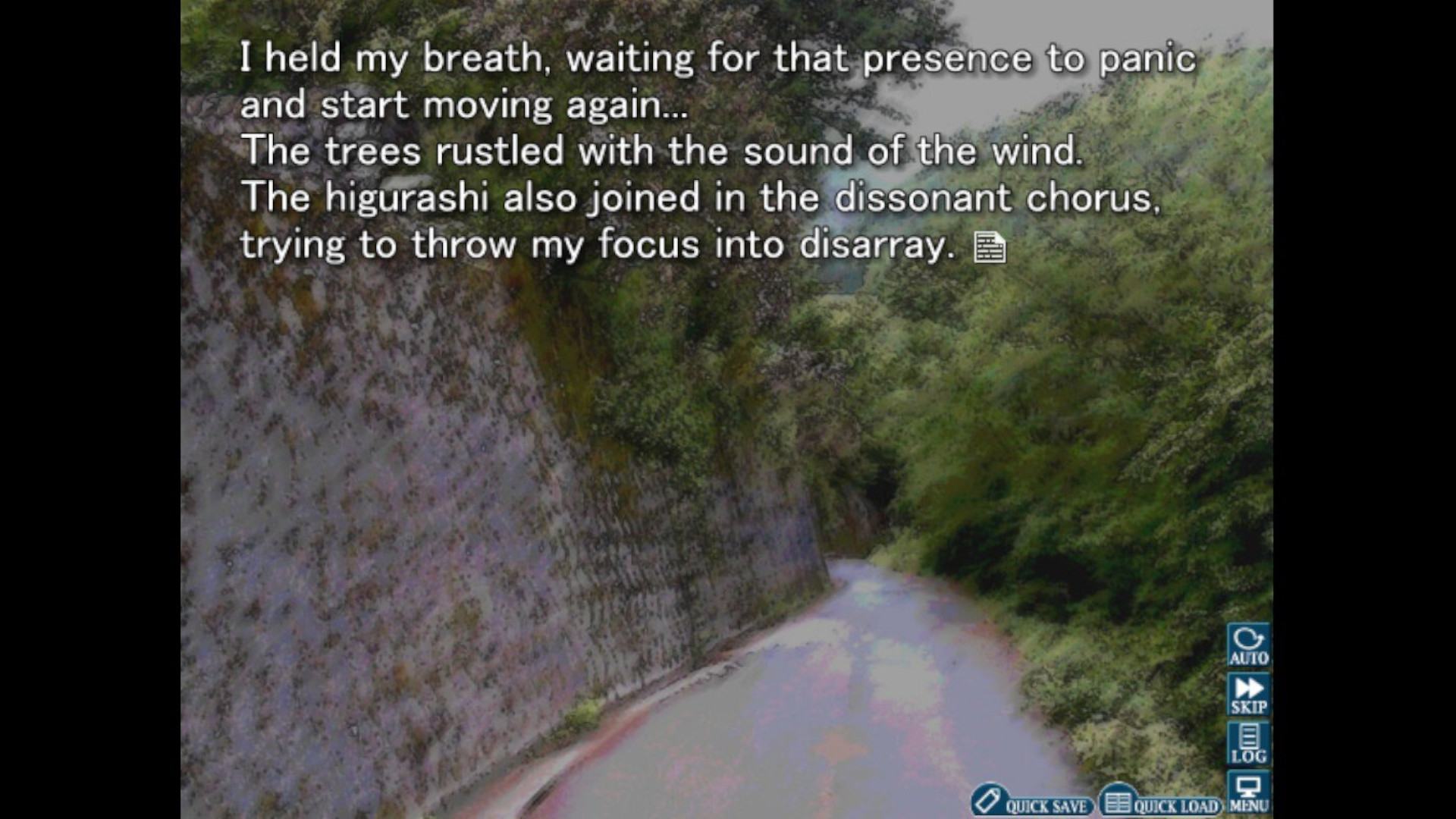
Because, yes, like Doki Doki Literature Club, the shocking moments center on your friends, and how their individual stories play out. And how much they might be able to mess you up. Higurashi's first story arc becomes a real thrill ride, with plenty of upsetting moments of gore.
I've been playing Higurashi via its default Steam release, with the original cutesy chibi-like character sprites, which means it doesn't even have all the extra artwork some Japanese-exclusive console releases have (which can be modded in). Even without explicit visuals to accompany many of Higurashi's most shocking moments, the descriptions of violence are so good that I have them imprinted in my mind. Few games have imagery this horrible, and Higurashi's are mostly painted with words. Which makes the times where the character sprites do get creepy stand out too.
Out in the sticks
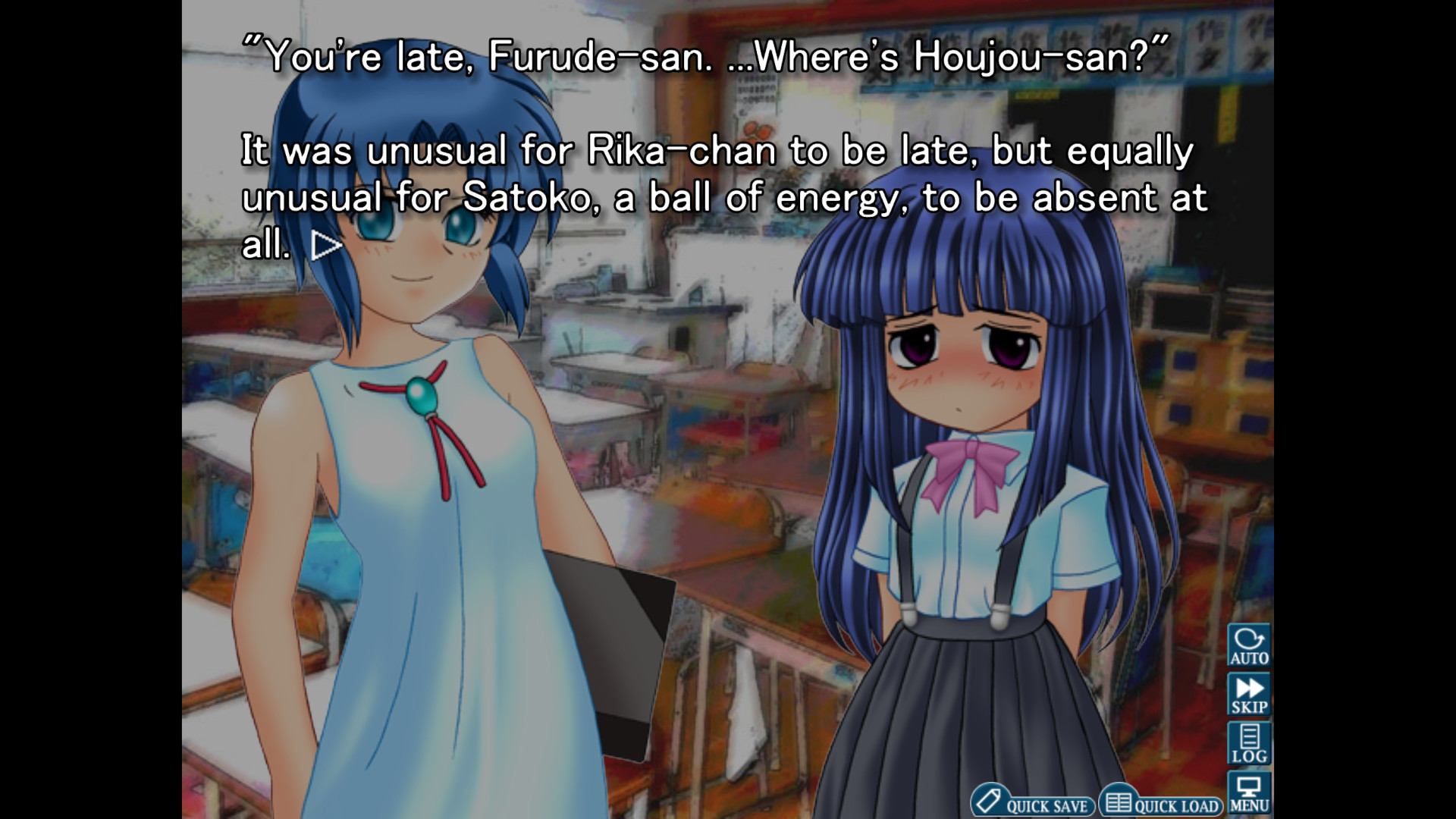
This is a game full of compassion.
I've mostly focused on giving you a sense of the first arc here, dodging real spoilers to the best of my ability, But the gore that underscores this first storyline is actually Higurashi at its least harrowing. Later arcs build on the mystery by focusing on different events, layering on fresh perspectives, and lean even further on psychological and social horror. You're constantly turning things over in your head, and even when things get cosier again later the earlier bits of terror mean paranoia gnaws at you, the player's, head even if Keiichi is sometimes painfully oblivious.
These arcs can be genuinely very upsetting works of horror (I'm only a little over halfway through them all myself), but what I've also been really enjoying about Higurashi is how it doesn't deploy its terrible events purely for shock value. This is a game full of compassion for victims and the vulnerable, and highlights imbalances of power in a way that avoids feeling exploitative, often in how it uses webs of text entries to mix together objective documents, leaving you to make chilling revelations by yourself rather than rubbing your nose in it. I wish more horror games were able to balance this better – some of the glossiest, fanciest ones I've played ending up having downright rancid messages about mental health and survivors of trauma.
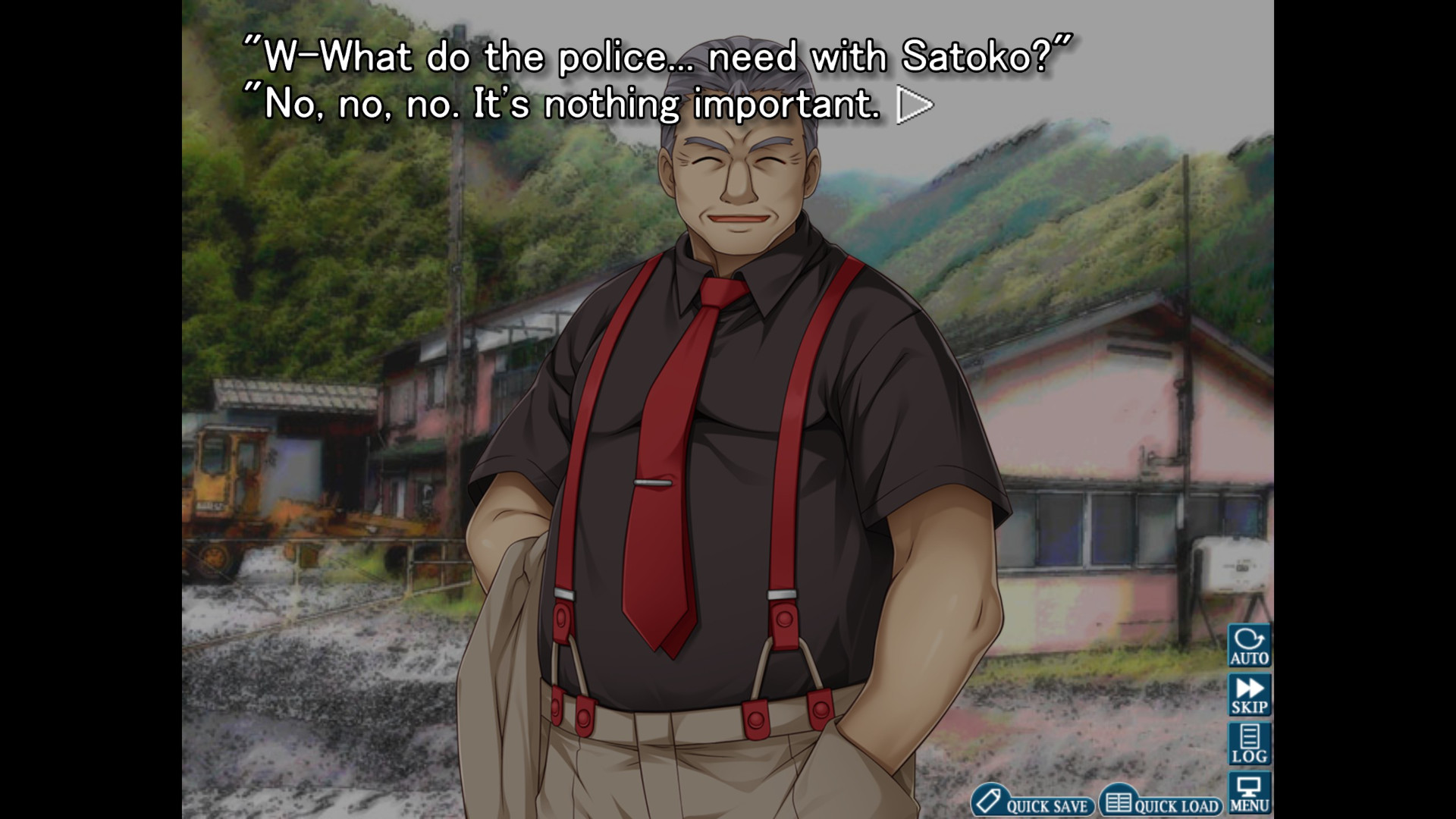
I won't say much more to try to avoid spoilers, as this really is a huge, chilling mystery that's best experienced for yourself. Higurashi: When They Cry is a visual novel with a lot of reading, but the atmosphere it creates through its writing and smart deployment of sound and visuals really creates a unique atmosphere that's not really possible to replicate outside of the gaming medium.
Ryukishi and 07th Expansion even highlight in-game that with the lack of choices in Higurashi, some might make some not consider it a game at all – but note that the real interactivity comes from trying to solve the mystery. (Which is a sentiment expanded upon in Umineko, the studio's following game). Considering all that, I really want to emphasize that playing Higurashi really is the way to go.
From what I've seen, the manga and anime adaptations truncate so much that it's hardly even the same experience. The best visual novels like Higurashi know how to make the most of the medium, making them some of the best gaming stories because of it. Because Higurashi has the room to get so deep, it's able to deliver on bolder, braver topics than most blockbuster games can.
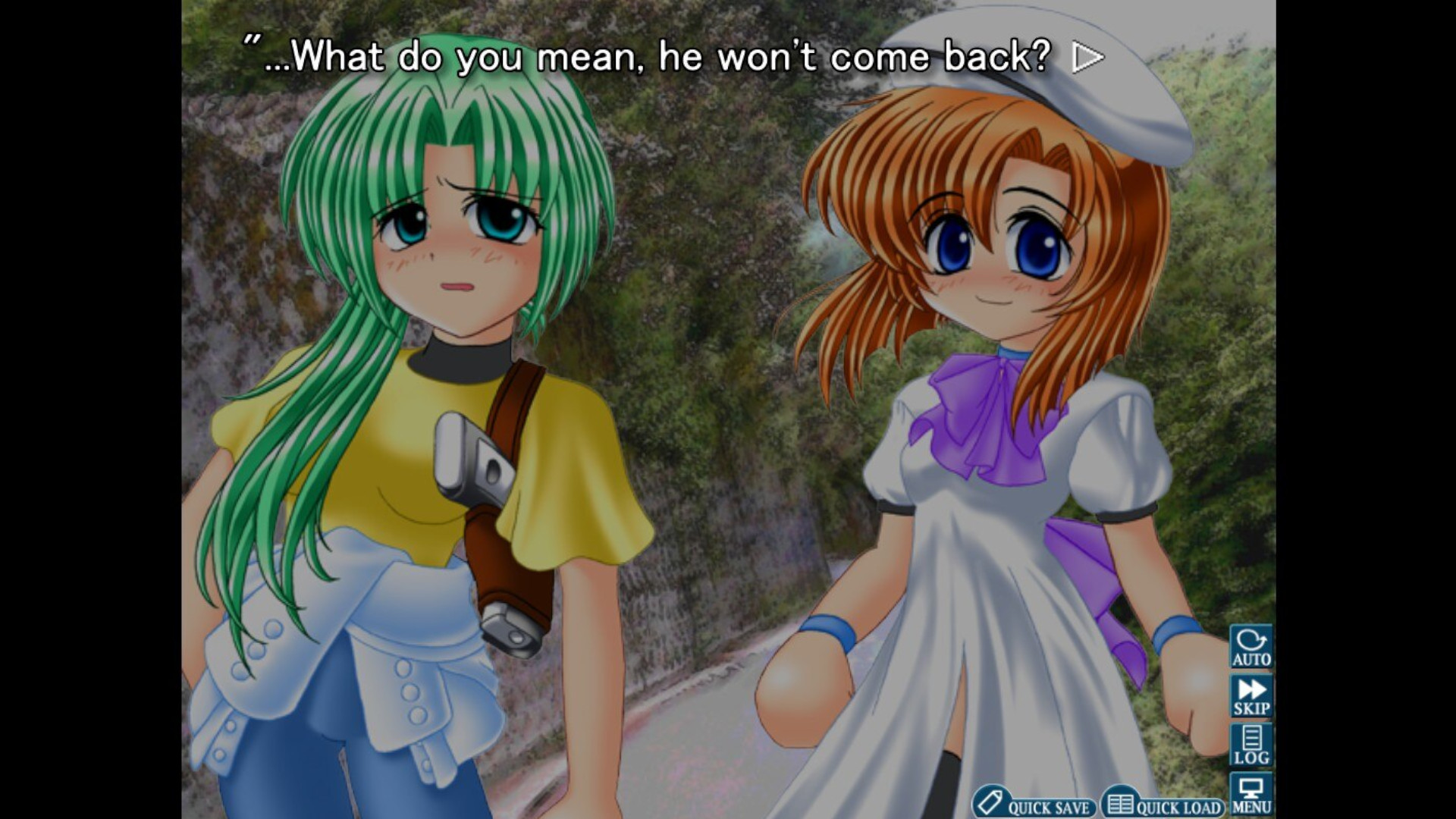
I've been really impressed by Higurashi: When They Cry. The characters have a lot of complexity, the horror is able to expertly go from subtle to full-on terrifying, and there's a genuinely well-crafted mystery at the heart of it. If you enjoyed Doki Doki Literature Club and you want not only more but a heck of a lot of it then this classic visual novel has it in spades – and has influenced more horror gaming than you might think.
Silent Hill f switches the US-setting for a small town Japanese one, so naturally I can't help but draw comparisons with Higurashi already. If even a fraction of the folk horror in Higurashi can seep into those foggy streets, then we could be in for one of the best Silent Hill games yet – and as a long-time fan it's rare for me to get that excited. I didn't expect to like the Silent Hill 2 remake, but it took me by surprise and came out really well, breaking my disenchantment with most modern games in the series. The stage is set for Silent Hill to strike out with something really fresh now with Silent Hill f, and with the writer of Higurashi: When They Cry involved, it could really work.
Looking for more scares? Check out our best horror games list!

Games Editor Oscar Taylor-Kent brings his years of Official PlayStation Magazine and PLAY knowledge to the fore. A noted PS Vita apologist, he's also written for Edge, PC Gamer, SFX, Official Xbox Magazine, Kotaku, Waypoint, and more. When not dishing out deadly combos in Ninja Gaiden 4, he's a fan of platformers, RPGs, mysteries, and narrative games. A lover of retro games as well, he's always up for a quick evening speed through Sonic 3 & Knuckles or yet another Jakathon through Naughty Dog's PS2 masterpieces.
You must confirm your public display name before commenting
Please logout and then login again, you will then be prompted to enter your display name.
